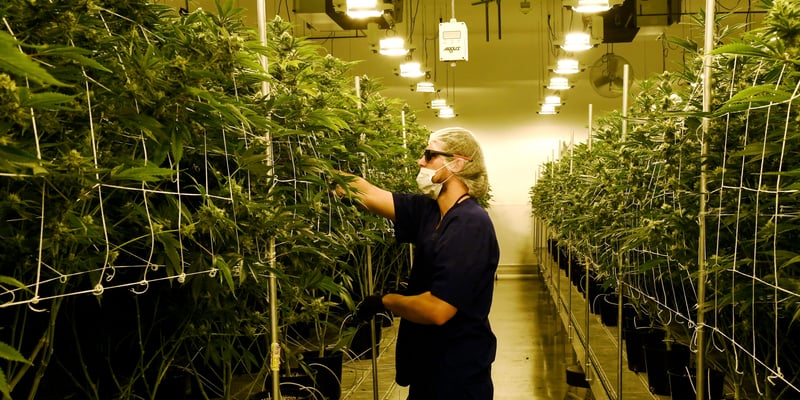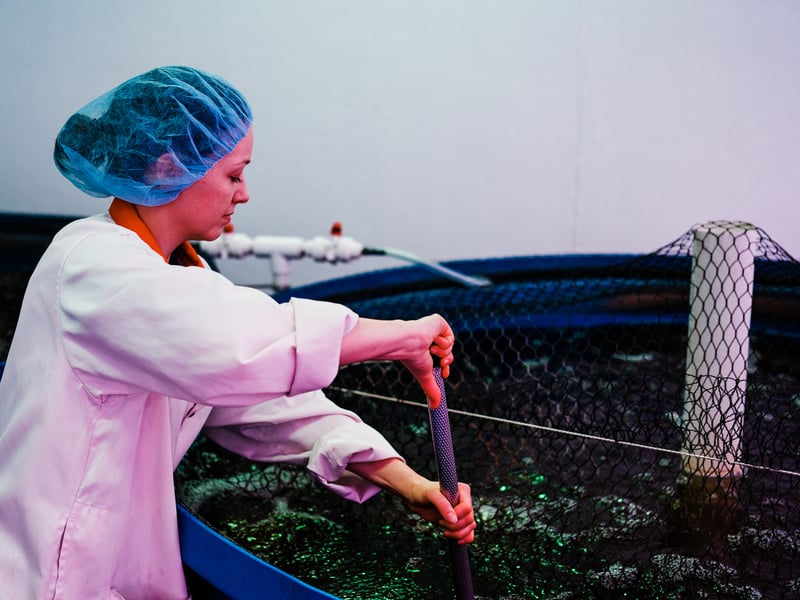


State officials are concerned about backlash from the feds.

LAS VEGAS, NV – JULY 06: David Burr demonstrates removing leaves on marijuana plants to allow more light for growth at Essence Vegas’ 54,000-square-foot marijuana cultivation facility on July 6, 2017 in Las Vegas, Nevada. (Photo by Ethan Miller/Getty Images)
In Maine, cannabis businesses are now being excluded from participating in a grant program that they help to fund.
Efficiency Maine, which oversees the state’s grant program aimed at lowering companies’ energy costs, has decided that investing in cannabis businesses is too risky so long as cannabis remains federally prohibited.
“I can’t tell my board that (U.S. Attorney General) Jeff Sessions isn’t going to shut them all down tomorrow,” Executive Director Michael Stoddard told the Portland Press Herald. “He’s got that right. He’s made it clear he’d like to. We can’t invest in a business that may not be around tomorrow.”
Maine’s commercial and industrial program grants are complicated, but their main purpose is to lower the energy consumption and operating costs of companies that use a significant amount of energy by helping to fund upgrades to these companies’ electrical systems. This is something the cannabis industry is in dire need of. According to some reports, indoor cannabis production in the United States is responsible for about one percent of the country’s total electricity use.
Efficiency Maine’s grants pay for up to half of a company’s total energy costs (up to one million dollars) and last year, these grants are estimated to have saved companies nearly 16 million dollars in utility costs. But cannabis businesses—despite being some of the largest utility taxpayers in the state to help fund these grants—will not be eligible to receive these benefits.

Companies such as Hamilton, Ontario’s Green Relief have begun to use aquaponics to grow cannabis in a water conservative and environmentally friendly way. (Photo by Connor Fyfe)
For cannabis businesses, these grants could be used to buy things like energy-efficient lighting, heating and cooling systems. According to the Press Herald, growers in other states are already taking advantage of similar grants to do just that.
The decision to cut cannabis businesses out of the grant program could result in negative environmental impacts in the state, as it means that Efficiency Maine can’t even provide cannabis companies technical assistance in designing a growing method that would reduce energy costs.
Still, Efficiency Maine says their decision makes sense not only because of federal prohibition but because of how challenging it can be to make grows more energy efficient. Switching to LED lights, for example, would appear to save energy at first glance, but they may also reduce growers’ cannabis yields because they emit less heat, which is necessary for growing cannabis. Therefore, in order to maintain the types of yields that are possible with the more energy-intensive HID lights, growers using LED’s would possibly have to increase their generation of heat. LED lights are also extremely pricey, which means that while the energy savings possible with these types of lights could, in fact, save money in the long run, it could also take up to nearly a decade to do so.